Delegates are invited to meet and discuss with the poster presenters during the poster presentation sessions between 10:30-11:30 on Thursday, 29 September 2016.
Presenter
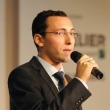
Co-authors:
Karim Fahssis (1) F Tristan Clarenc (1) Pengyu Zhao (1)
(1) MeteoPole Zephy-Science, Marseille, France
Presenter's biography
Biographies are supplied directly by presenters at WindEurope Summit 2016 and are published here uneditedKarim Fahssis is a well-known wind energy expert with a deep knowledge and hands-on experience of all the stages of a wind power project : from site selection to power performance optimization through bankable assessments and micrositing. Karim Fahssis was recently awarded by the MIT Technology Review as the "Innovator of the year 2014" for introducing path breaking software technologies to the wind industry. Karim holds a double master’s degree in mechanical engineering and fluid dynamics from Centrale Nantes engineering school (France) and energy management from the Xi’an Jiaotong University (China).
Abstract
A New Opensource and Free Software Tool to Sanitize Project Data and to Enable Data Sharing
Introduction
The global wind industry has become more mature and sophisticated in the past half-decade, with a much better understanding of wind farm modeling at multiple scales. However, there is a lack of validation data sets available for transparent testing of enhanced wind resource assessment methodologies, with reproducible assessment processes leading to unquestionable conclusions. Zephy-Science is pleased to introduce a free and opensource software tool to sanitize project data to enable project data sharing between projects owners and technology providers.
Approach
The first version of the tool focuses on sanitizing all the projects data required for providing a complete third party wind resource assessment. Measurement data can be sanitized by applying scale factors and offsets. Topographical data can be sanitized by removing the georeference information and by applying a rotation with a random angle.
Main body of abstract
In order to make wind projects more bankable, wind industry players should work together to build reproducible and transparent validation cases to be integrated within industry software and shared with users community. Such validation cases could be referred to as "Open Validation Cases". To do so, wind industry players should be able to share data without compromising on privacy and sensitivity issues. Sanitizing data becomes crucial to achieve the required data sharing. The sanitizing process can be done on local computers before uploading the data on the internet. Along with the sanitized data, another output of the tool is a key allowing data owners to reproduce the original input data from any sanitized output data. The data sanitizing process will be explained in details and examples in different projects around the world will be given.
Conclusion
The data sanitizing tool can be accessed for free and the sources can also be checked to ensure transparency. This tool can now be used by industry players to share projects data without compromising on data sensitivity and privacy.
Learning objectives
1/ Data sensitivity and privacy can be ensured even while sharing data.
2/ Sharing data can be beneficial for the wind industry as it will allow transparent and reproducible validations to become the norm.

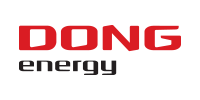
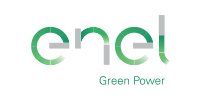
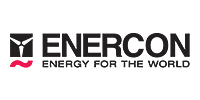
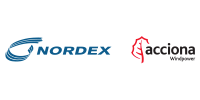
Follow EWEA on: